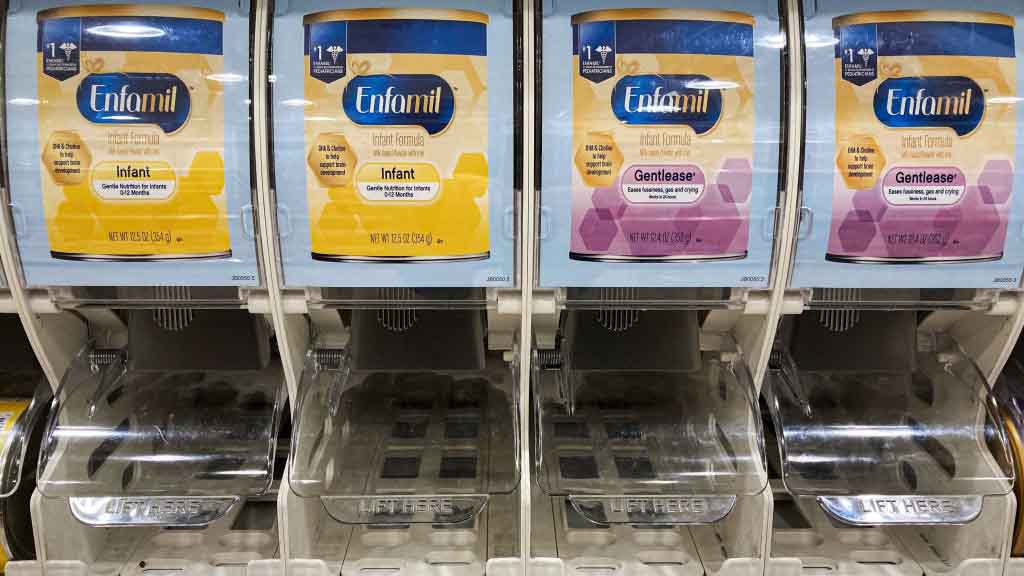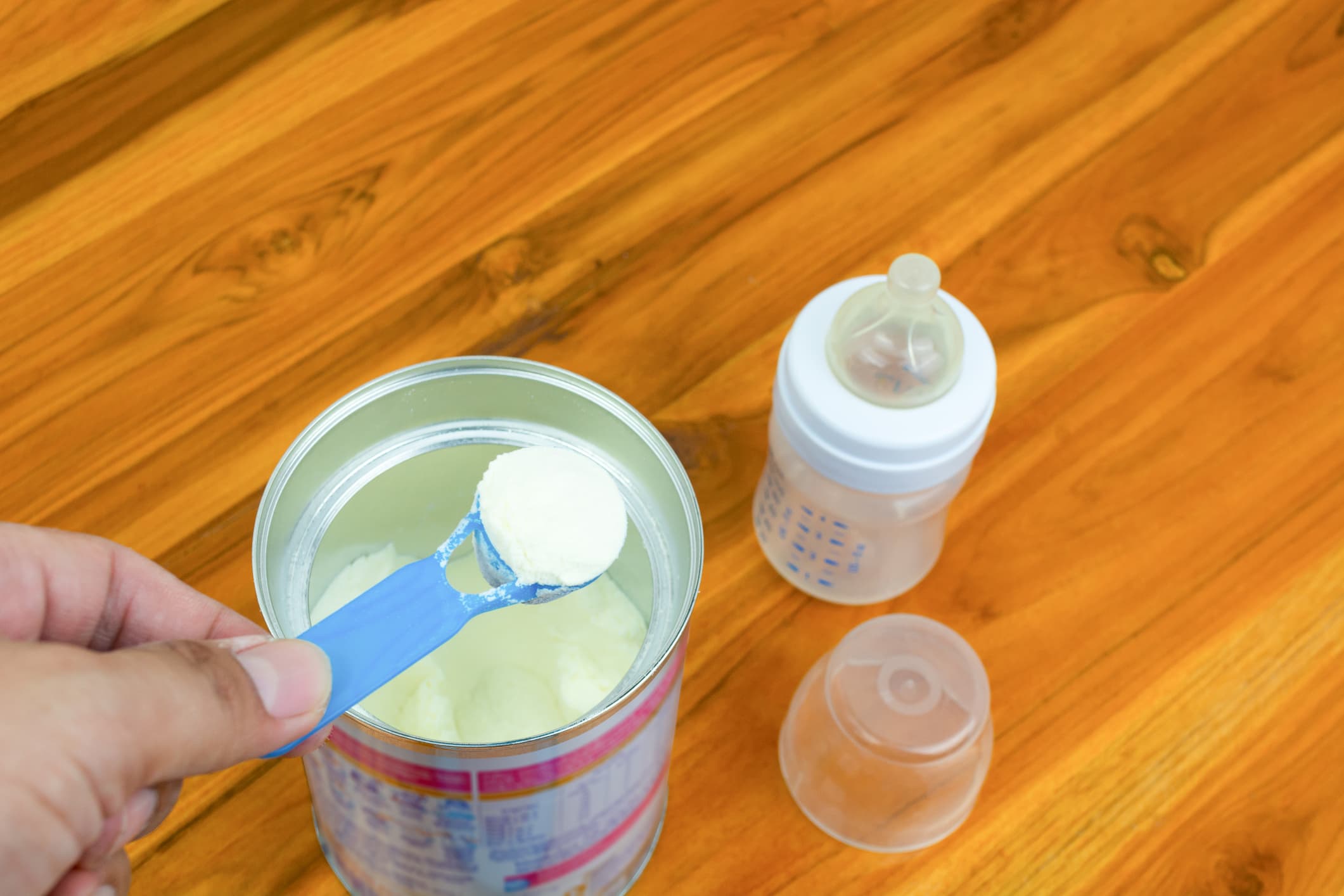At just three months old, little Dylan Moskowitz relies on a special hypoallergenic baby formula to thrive. But when his mom opens up the cabinet to make his meals, she worries.
“Knowing this is a week’s worth, maybe a little more is heartbreaking, scary,” said Alexandra Moskowitz, as she looks at the four remaining cans on her shelf.
Moskowitz feels the recent baby formula shortage is only getting worse. Her husband used to find at least one can of formula after visiting three or four stores, now sometimes he goes to twice that many and comes home empty handed.
“Desperate, we’re really trying to get our hands on it. I don’t know what I would do God forbid if this is it,” said Moskowitz.
Get South Florida local news, weather forecasts and entertainment stories to your inbox. Sign up for NBC South Florida newsletters.
Doctors at Nicklaus Children’s Hospital and pediatricians in Fort Lauderdale are reporting even their stock of sample formula they hand out to parents is running low.
Moskowitz is turning to other mom’s on social media to share information about where to find Dylan’s food, a move pediatrician’s approve.
“I know this is a very hard time, so we are going to lean on asking friends, searching in various stores, social media groups to help find the formula that your baby needs so that they are fed,” said Dr. Mona Amin, a Pediatrician in Fort Lauderdale with Pediatric Associates.
But Dr. Amin warns against some of what she’s seen online. She says parents shouldn’t make formula at home because home kitchens are not sterile so there’s a risk of infection, and it is likely nutritionally deficient. She also urges parents not to ration formula by over-diluting it.
“For powdered formula, they’re prepared in a certain ration but parents are sometimes adding more water than is recommended and that is called over dilution which can lead to electrolyte imbalances in a baby which is not good for them. It can lead to seizures when it’s done in a repetitive basis.’
You can consider other alternatives to formula depending on your baby’s age. Pediatricians say four month olds can start eating puréed foods in place of one or two formula feeds per day, as long as the child has good head control and an interest in purées. Children six-to-nine months old can start to substitute with cow’s milk or soy milk while parents look for more formula. Children nine months and older can switch over entirely to cow’s milk if there’s no allergy. Dr. Amin says these recommendations are only in place during the formula shortage, and once formula is available again, babies under a year could go back to it.
“The critical age is under four months when a child can’t get anything but breastmilk or formula and in this formula shortage it is important that we’re trying to keep the formula for those babies. That is why families closer to nine months should consider the cows milk transition,” said Dr. Amin.
Because babies like Dylan have no other option.
“We’re just hoping and praying that we don’t get down to one can, that we can find some more before that happens,” said Moskowitz.
The Biden Administration invoked the Defense Production Act to ensure manufacturers have the ingredients needed to make safe and health infant formula at home. It also requires suppliers to direct needed resources to infant formula manufacturers before any other customer that may order that good.
It also initiated Operation Fly Formula which speeds up the import of infant formula from other countries. The Dept of Health and Human Services will use commercial aircraft to pickup overseas formula that meets U.S. health and safety standards to stock local shelves.



